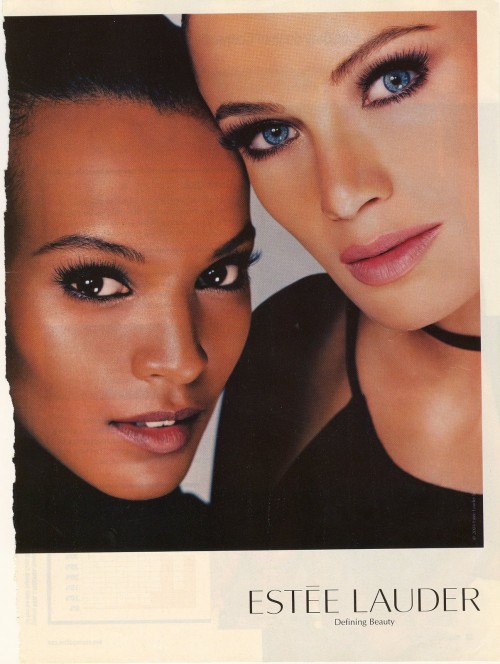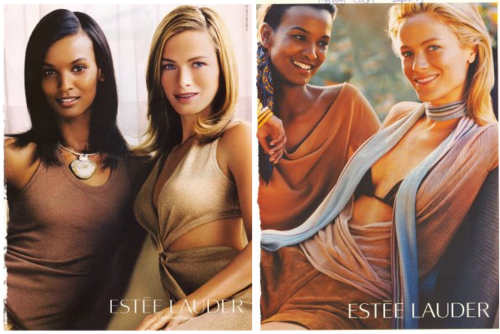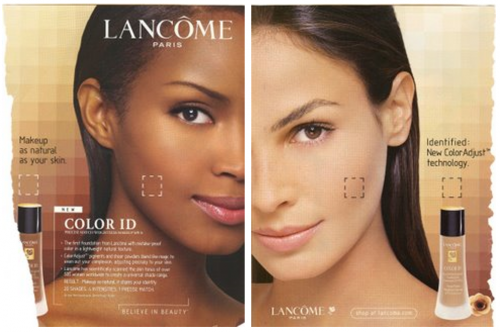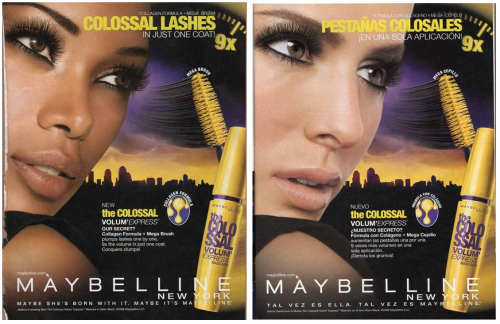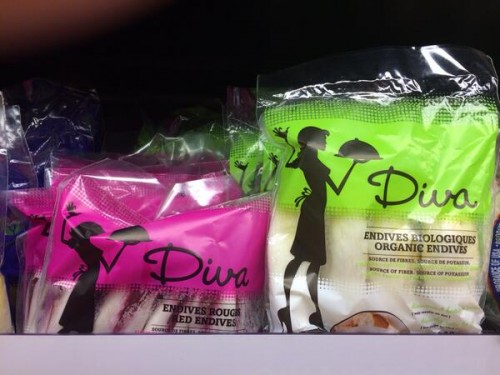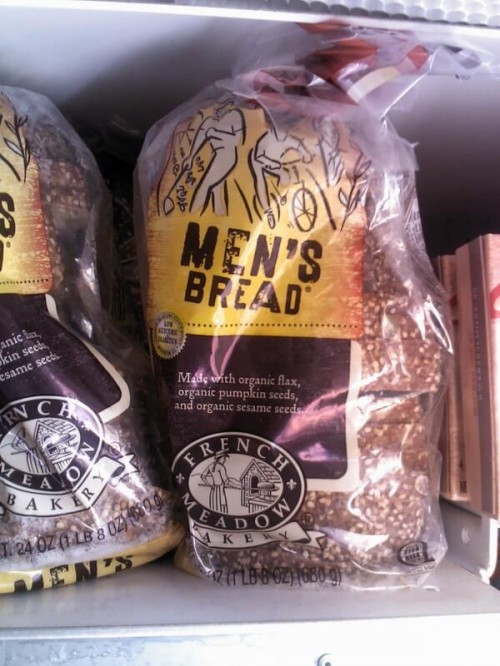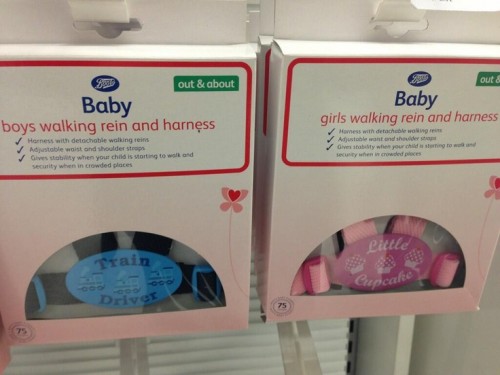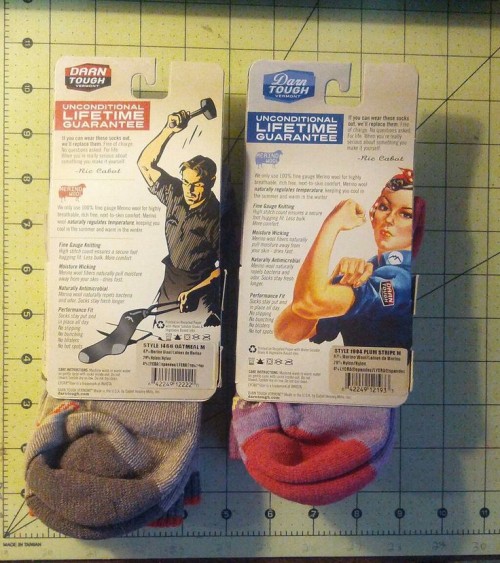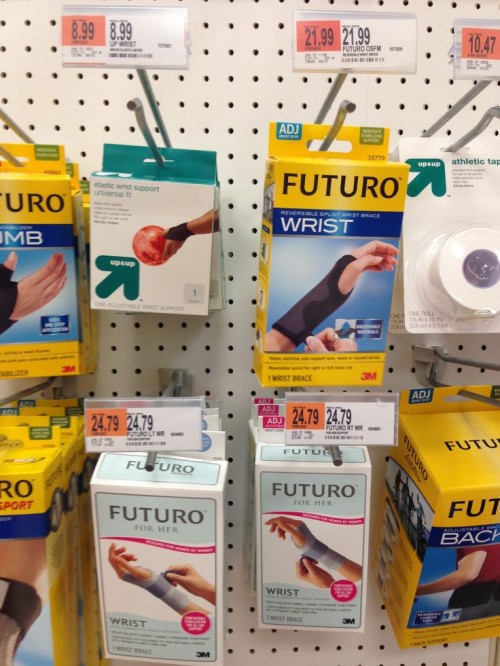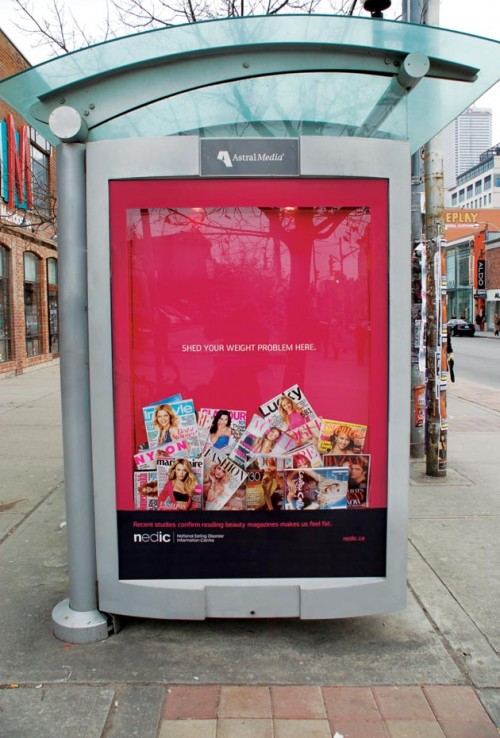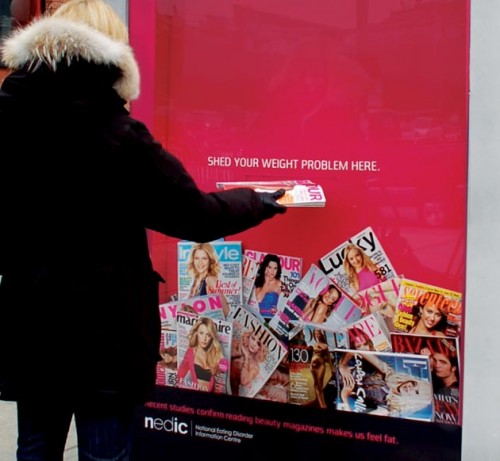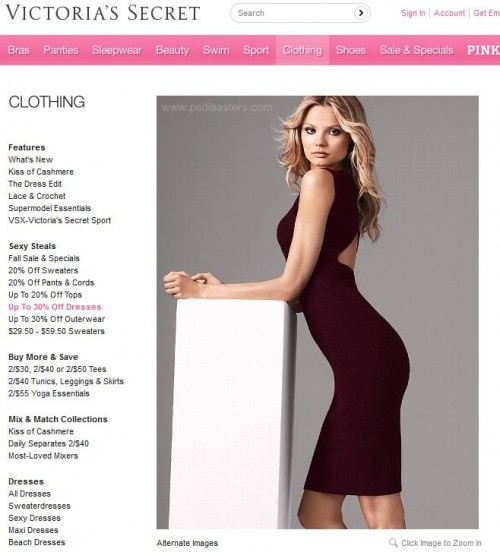Flashback Friday.
One manifestation of white supremacy is the use of whiteness as the standard of beauty. When whiteness is considered superior, white people are considered more attractive by definition and, insofar as the appearance of people of other races deviates from that standard, they are considered ugly.
Non-white people are still allowed to be considered beautiful, of course, as long as they look like white people.
This collection of images is a nice illustration of the way in which black women, in particular, are expected to look white in order to qualify as beautiful. The images are powerful because the black models look almost identical to the white models, but also because they are ads for make-up. So the ads are literally selling beauty.
This is Flashback Friday, so these are ads I collected and posted in 2008. Have things changed or stayed the same? Or, am I being unfair? Most white women do not look like these women either. And the women of color in the images are, in fact, women of color. Who am I to say they don’t look “black”? Is there something else going on here? I’m happy for the conversation.
Lisa Wade, PhD is an Associate Professor at Tulane University. She is the author of American Hookup, a book about college sexual culture; a textbook about gender; and a forthcoming introductory text: Terrible Magnificent Sociology. You can follow her on Twitter and Instagram.

